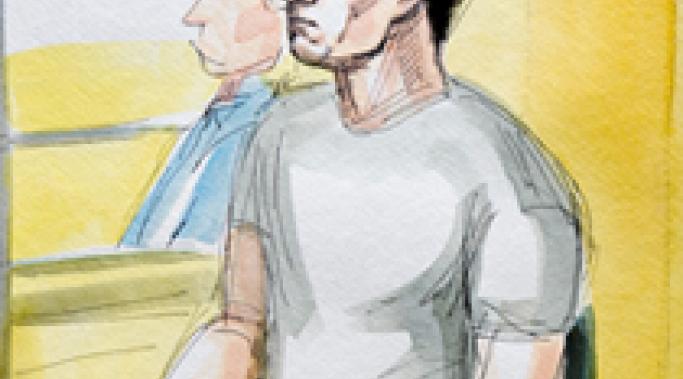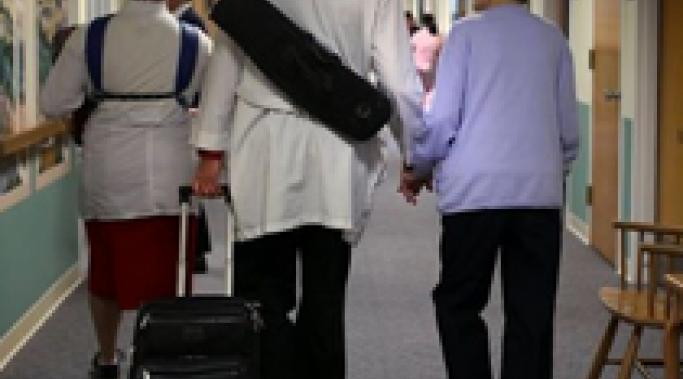Blogs
A moment of normalcy in self-harm recovery can go unappreciated. But we shouldn’t wait until we are feeling sick or depressed to realize how it feels to be happy or content. We often don’t recognize how we feel when we no longer struggle with unrelenting urges to hurt ourselves. In fact, it usually takes a negative situation to make us realize how lucky we were to feel, well, normal. I know it’s difficult to describe what normal means, but let's try to find our own normal so we can appreciate those moments of normalcy in self-harm recovery. What would a moment of normalcy be for you?
Anxiety causes are complex, and living with anxiety can be agonizing. Case in point: three people are walking together down a hallway in an office. A coworker passes by and says absolutely nothing. Person A thinks, “Hmmm. He seems in a hurry. Must be busy today.” Person B thinks nothing at all about this but continues to mull over whatever she is mulling over.
Person C thinks, “Oh no. He didn’t say anything to me. He must be upset. I must have offended him somehow. What do I do about this? How can I face him? Should I approach him or let him approach me? What if he doesn’t want me to work here anymore?”
One situation, three different reactions. Why? What causes the anxious reaction of person C?
Spring can be a tough time for me, often triggering a depression similar to a seasonal affective disorder episode. This year I had a depressive period in April. Following a medication tweak, I’ve been doing well. On a mood scale I’d be scoring decent to good lately. But I’ve recently been reminded that depressed or not, life is full of ups and downs and they need to be dealt with.
It is one thing to accept that you need help—it’s another to find a substance abuse recovery center that matches with your, unique self. You want to find one that focuses on your type of addiction, gender and age, while also providing a tailored treatment plan that specifically fits your needs. Finding the right recovery center, metaphorically, is much like strolling through stores for the right pair of pants. Thousands are out there, but few are the perfect fit for you.
So which recovery center holds the key to your success? Start by investigating the principles required for an effective rehabilitation program and the various models that exist within them. These can include in- and out-patient care facilities and holistic vs. medication approaches.
As I’ve mentioned previously, medication and psychotherapy (such as prolonged exposure therapy) both have a place in the treatment of combat posttraumatic stress disorder (PTSD). However, there are additional therapies that can help veterans. One such type of therapy is mindfulness-based. You might have heard of this as mindfulness meditation and you might have thought that meditation wasn’t right for you, but mindfulness is much more than that and a 2013 study shows that veterans found mindfulness-based therapy was accepted by, and effective for, veterans with combat PTSD (more below).
On National Public Radio (NPR) today, I heard an array of psychiatrists and parents speak about the mental health system, and how to better protect the public from the criminal behavior of those with severe mental illness. The argument was that society needs protection from us, so that the tragedies and shootings that have occurred over the past decade can be prevented. They spoke of gun control, forced hospitalization and increased access to care. Many of these points are valid, and yet their entire perspective on mental illness is heavily flawed.
Growing up, I did not have a TV in my bedroom. Instead of staring at a screen for hours on end, I would climb the tree in the backyard or run around in the woods. I was the geek who would choose to write in a journal, over some movie marathon. Even now, I do not have one in my bedroom, but I do have a few shows that I obsessively follow.
It’s hard not to get hooked on a show if it grabs your attention for some reason or another. However, I’ve noticed that some shows seem to embrace the idea of self-harm without even realizing it. Shows that are set in different eras or in lands of fantasy may cut the skin of others or their own even if it is not for the reason many harm themselves for today.
If you are anything like me, you’ll find the news media to be a virtual minefield of anxiety and panic attack triggers. Television, radio, newspapers, magazines, and the Internet are constantly bombarding us with headlines about various happenings in the world. Whether local, national, or world news, the one thing that is certain is that media will find, create, or report on anything that will draw our attention.
More often than not, the news is negative. Anything tragic or controversial crowds the front pages and runs at the top of the hour. The phrase, “if it bleeds, it leads,” appears to be the measure of newsworthiness for any story. Constantly being bombarded with stories of danger, crisis, and violence is enough to leave even the most level-headed among us feeling anxious about our own safety and that of our loved ones.
These days my functionality, and bipolar pain level, is fairly predictable. When I wake up, I feel pretty crummy. Slowly, as the coffee hits my system, I feel a little better and become more functional. That functionality, though, only lasts for a few hour before the bipolar pain comes raging in and I find myself too depressed, in too much pain, or too anxious to do much of anything.
In other words, midday, I know that bipolar pain is on its way. I know it’s coming. I am anticipating my bipolar pain.
But how do you handle it when you know that bipolar pain is on its way?
Upon receiving a diagnosis of Alzheimer's disease or dementia, many individuals may enter into an inpatient treatment program that is specifically designed to help stabilize those who are exhibiting altered mental states, behavior problems, agitation, or symptoms of another mental health disorder. Through an inpatient treatment program, individuals with dementia will be able to get the medication and various therapies they need to get back to their highest level of functioning. Since all of an individual’s needs are met while he or she is in the care of an inpatient treatment program, it can be difficult to know what to do when he or she is discharged from the program.









